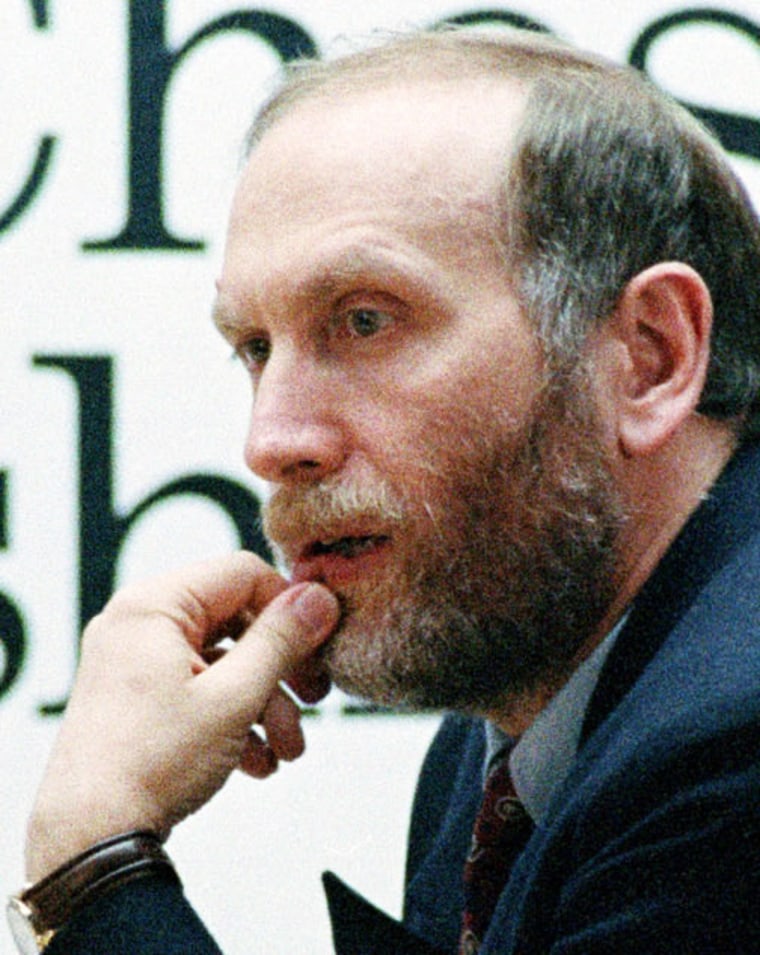An influential Japanese politician said Thursday he has volunteered to be Bobby Fischer’s legal guarantor and urged immigration authorities to release the former world chess champion from an airport detention cell where he is being processed for deportation.
Ichiji Ishii, a former deputy foreign minister and three-term member of Parliament, said he was volunteering to support Fischer “as a person who likes chess, and as a friend.” To be released, Fischer needs a Japanese citizen to guarantee that he won’t leave the country.
Japanese authorities on Tuesday turned down an appeal against their decision to deport Fischer for allegedly traveling on an invalid passport. Fischer was detained at Narita airport, just outside Tokyo, after trying to board a plane for the Philippines on July 13.
Fischer has until Friday to lodge another appeal. Ishii said that Fischer should not be kept in custody during the appeal process because he is not likely to try to flee.
“There is no danger of him hiding or disappearing,” Ishii said.
May apply for German passport
John Bosnitch, another Fischer supporter, said he has been in contact with several countries in an attempt to win political asylum for the eccentric chess legend. He said Fischer, whose father was German, is also considering applying for a German passport.
“It is very hard to predict Bobby Fischer’s next move,” Bosnitch said. “But I think he’s in a winning position, if the law means anything.”
Fischer became an American icon when, at the height of the Cold War, he defeated Boris Spassky of the Soviet Union in a series of games in Reykjavik, Iceland, in 1972. The win made him the first U.S. world champion in more than a century.
Increasingly erratic and reclusive, he lost his title as world champion in 1978 and then largely vanished from the public eye until he reappeared to play a rematch in the former Yugoslavia against Spassky in 1992.
Though Fischer won, and took home more than $3 million in prize money, he played in violation of United Nations sanctions and has been wanted in the United States ever since.
‘A political statement’
“It was a political statement by Bobby to stand up to the sanctions,” Bosnitch said, adding that Fischer has not returned to the United States since the rematch.
According to Bosnitch and other supporters, who have formed a “Free Bobby Fischer Committee,” Fischer traveled frequently, and was even issued a new passport by the United States in 1997.
Bosnitch said that Fischer was unaware that his passport had been revoked when he was detained at Narita. He also claimed that the passport was revoked without due process, and thus is still valid.
Japanese officials have so far been unconvinced.
They upheld their decision to deport Fischer after a two-day hearing that was closed to the media.
Though Fischer has kept a low profile in recent years, he was frequently interviewed by a radio station in the Philippines. In one session he praised the Sept. 11, 2001, terrorist attacks, saying America should be “wiped out” and describing Jews as “thieving, lying bastards.”
Bosnitch, who acted as Fischer’s adviser during the appeal hearing, refused to comment on Fischer’s political positions, but said Fischer remains a “genius.”
